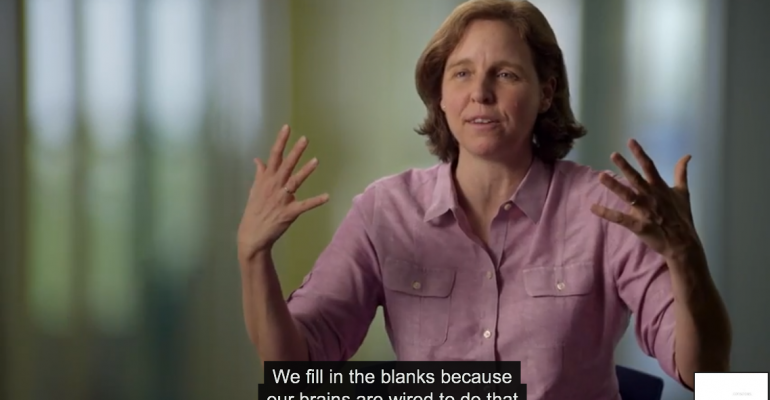Way back when I had a favorite bumper sticker that read, "Question Authority." It appealed to my youthful rebelliousness and my growing belief that just because someone had power over me, it didn't mean they necessarily had the answers, at least not the right ones. But who thinks to question authority when that authority is yourself?
But question you must, because, as this wonderfully thought-provoking post from the Official Google Blog points out, our unconscious minds likely are directing us to make decisions that can undermine our workplaces, and our meetings. How does that work? Check out this example from Google:
When YouTube launched their video upload app for iOS, between 5 and 10 percent of videos uploaded by users were upside-down. Were people shooting videos incorrectly? No. Our early design was the problem. It was designed for right-handed users, but phones are usually rotated 180 degrees when held in left hands. Without realizing it, we’d created an app that worked best for our almost exclusively right-handed developer team.
Meeting managers are probably better at sniffing these unconscious biases out than most—and probably also get more feedback when one causes a problem for attendees or fellow staffers.
But could all those positive reviews of a speaker cause you to hire her due to a halo effect, or because she actually is the best fit for your audience? Are there segments of your audience that tend to contribute most, or be most valuable to your organization, or that are most like the planning team? Is it possible that unconsciously you tip the programming in their direction due to in-group favoritism?
(Aside: I love that part of Google's solution was to hold a workshop!)
This can be a tough topic to tackle. I remember when I wrote about it a few years ago in light of making meetings more inclusive, I got some really nasty responses from people who disagreed with some of the suggestions people I interviewed made. It can get touchy, but I think it's key to question, question, and question some more to uncover what's motivating us to do things we don't even know we're doing. As Patti Digh, co-founder of The Circle Project and author of some pretty amazing books, told me for that article, you may not be able to do it on your own:
“My culture is normal to me, and I don't question it because I grew up with it. It's my blind spot. Like in a car, the best way to see around a blind spot is to have someone else in the car with you. One of the questions I always ask is, ‘Who else should be at the table?’”
Anyway, take a couple of minutes to watch this video, and think about how what you don't know about your biases and assumptions may be affecting your colleagues and your attendees in ways you don't realize. Challenge your own authority.




